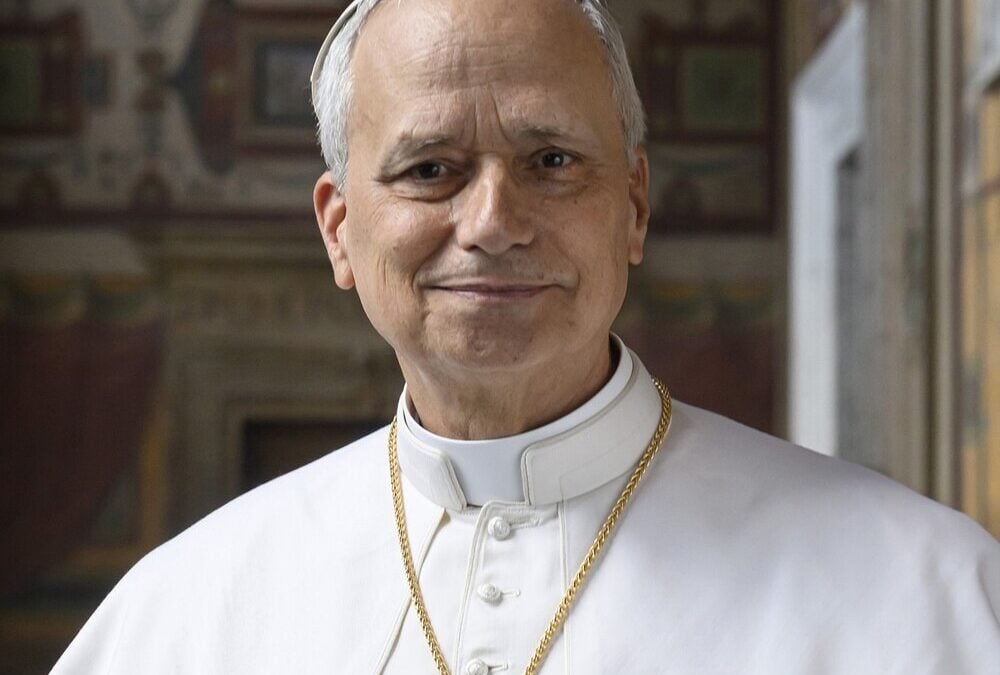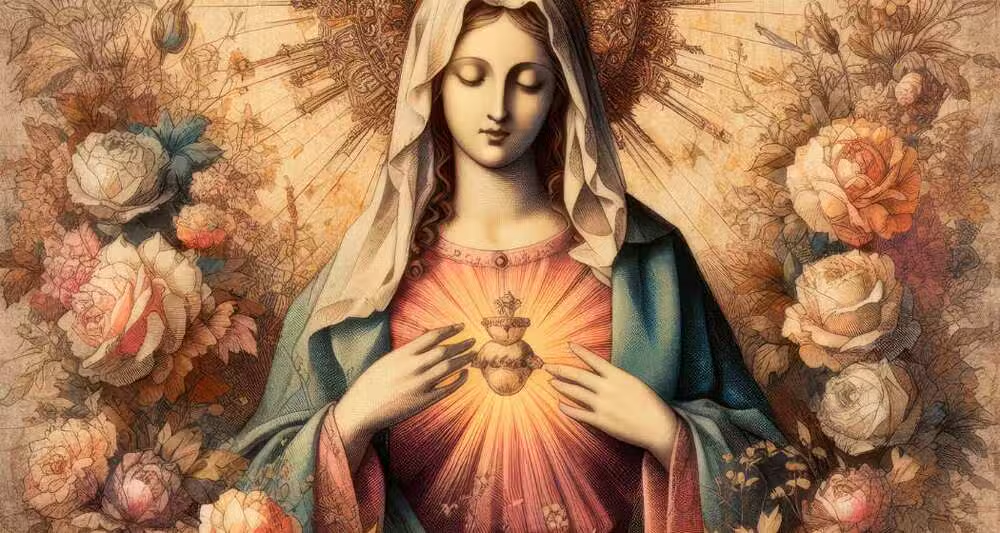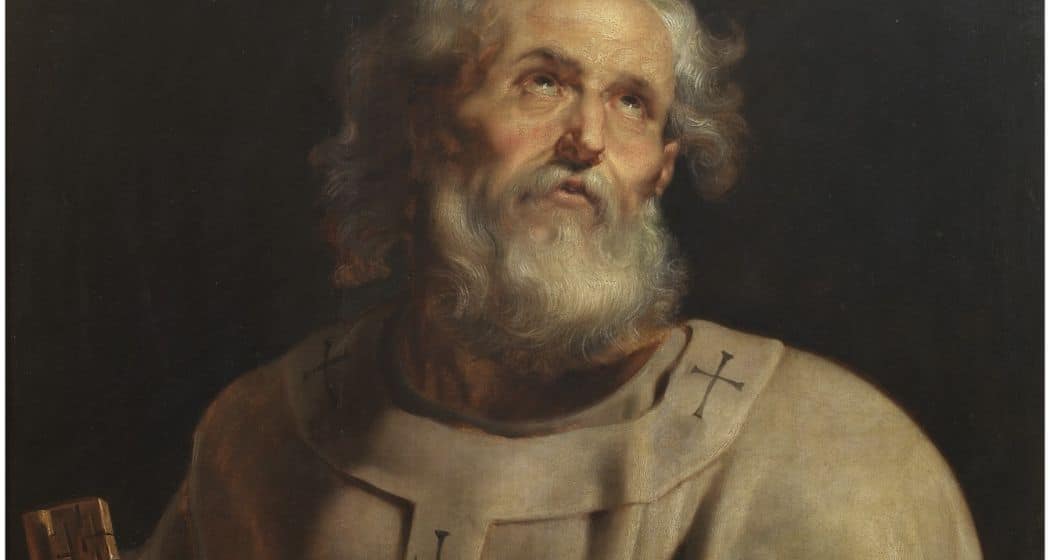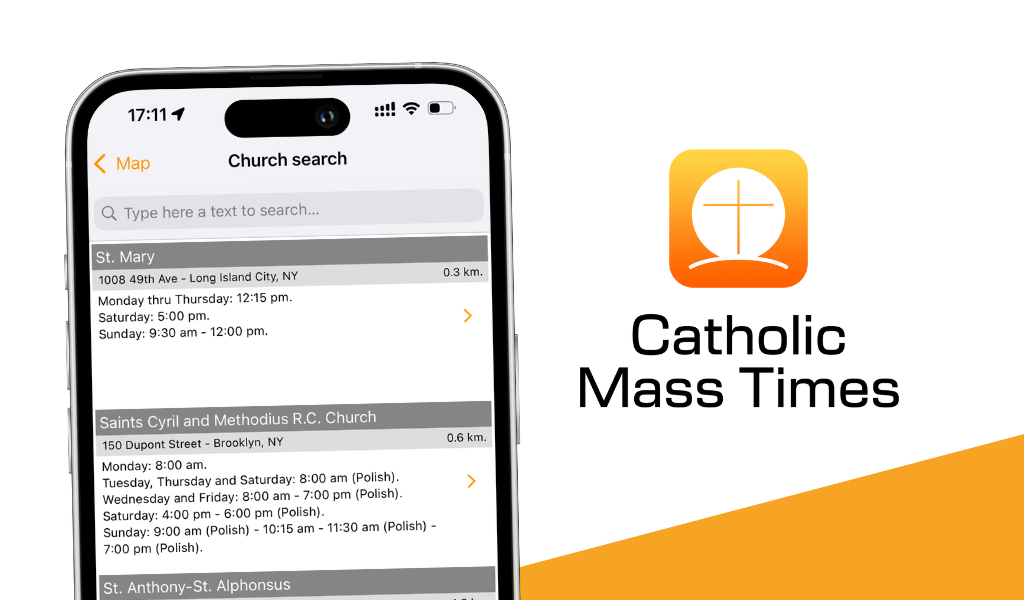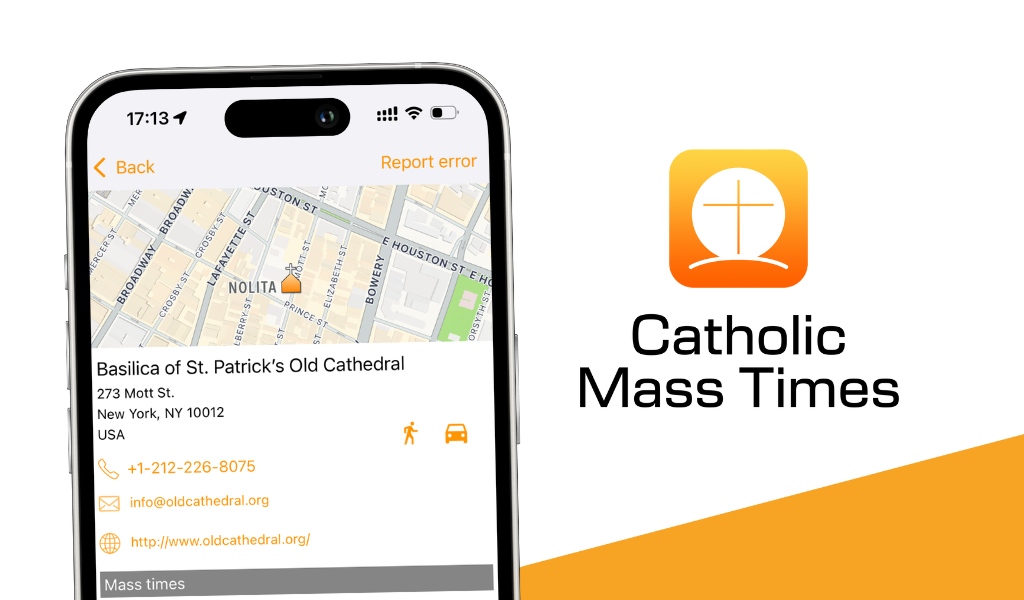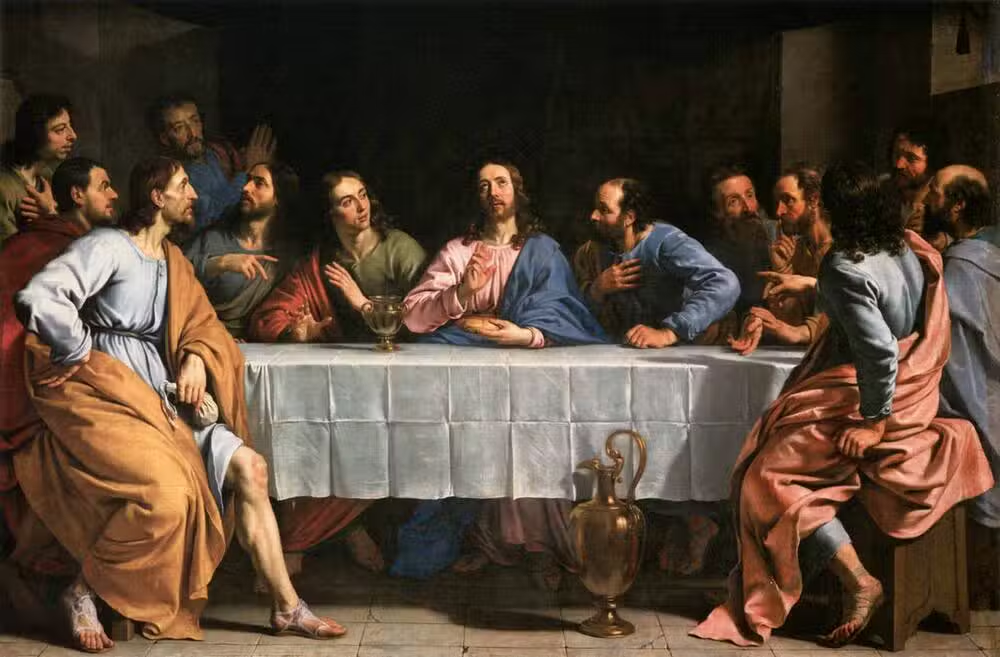The Feast of the Assumption of Mary is celebrated every year on August 15.
This feast commemorates the belief that Mary, the mother of Jesus, was taken body and soul into Heaven. The doctrine was formally defined as a dogma of the Catholic Church in 1950 through the apostolic constitution “Munificentissimus Deus”. It declares: “the bodily Assumption of the Blessed Virgin Mary into heaven – which, regarding the heavenly glorification of the virginal body of the august Mother of God, could not be known by any human faculty with its natural forces alone – is a truth revealed by God, and therefore all the faithful of the Church must firmly and faithfully believe it” (12).
You can use the Catholic Mass Times app to find the nearest Catholic church with Mass, Confession, and Adoration schedules. It will surely help you! Download it now.
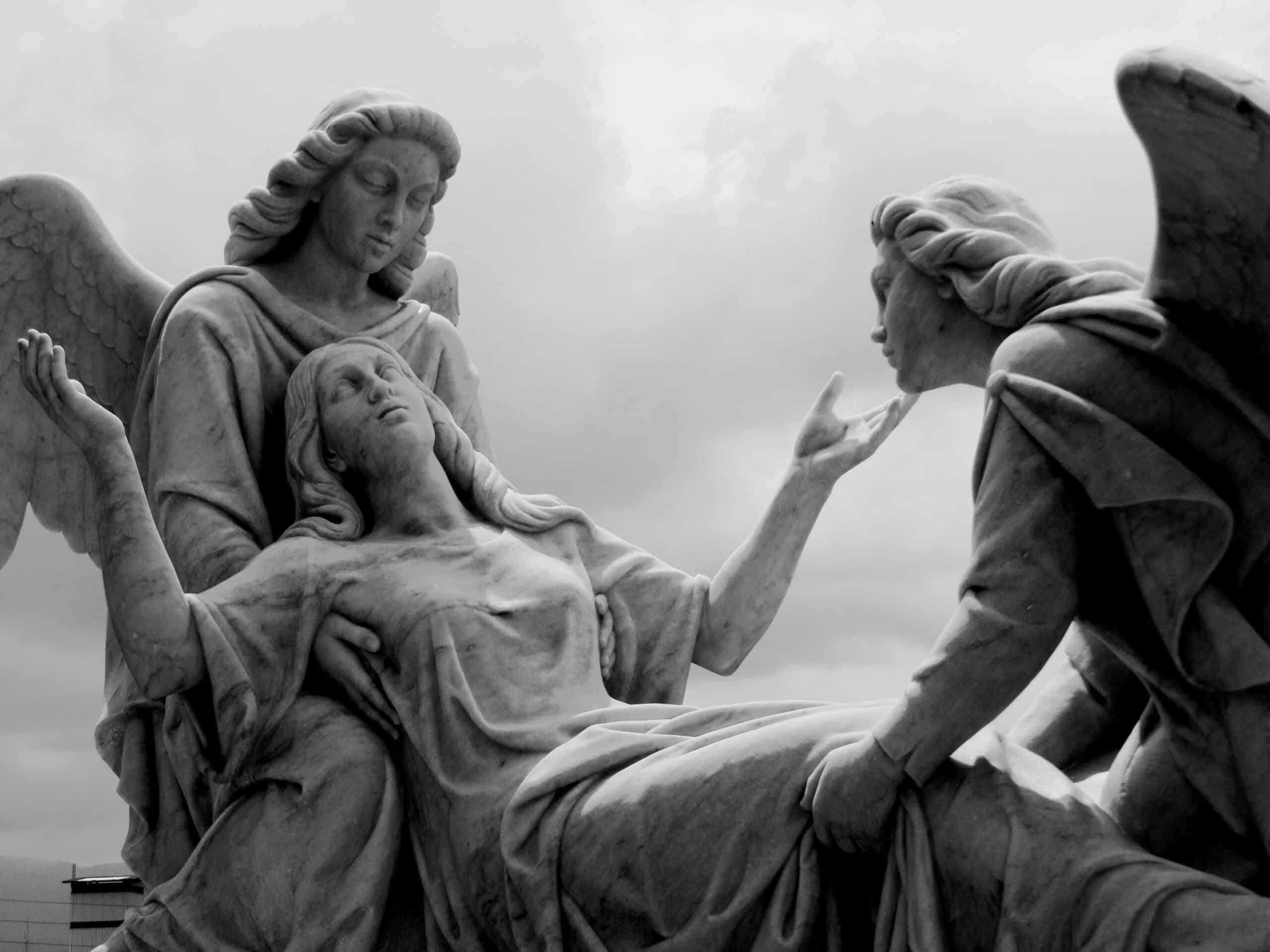
What is the meaning of the Assumption of the Virgin?
The solemnity of the Assumption of the Blessed Virgin Mary has its roots in the 5th century, where it was considered as the “Birth into Heaven” of Mary or the “Dormition” according to Byzantine tradition. In Rome, this feast began to be commemorated in the mid-7th century, but it was on November 1, 1950, when Pope Pius XII officially defined the dogma of the Assumption of Mary into heaven in body and soul.
In the Apostles’ Creed, we profess our faith in the “resurrection of the flesh” and in the “eternal life”, which represent the ultimate purpose of our existence. This promise is already fulfilled in Mary, who is seen as a “sign of consolation and sure hope” (Preface). This special privilege of Mary is intrinsically related to her role as the Mother of Jesus: since death and bodily corruption are consequences of sin, it was not fitting that Mary, free from sin, should suffer such effects. Thus, the mystery of her “Dormition” or “Assumption into Heaven” is celebrated.
The fact that Mary is already in heaven in body and soul fills us with joy and hope, as a creature of God has reached heaven; like her, we too, as children of God, are called to reach that destination. Mary’s future, united to Jesus’ glorified body, is also the future that awaits those of us who are united to Him in faith and love.
The liturgy, through texts from Revelation, the Gospel of Luke, and the Magnificat, encourages us to prayer rather than reflection. The Magnificat, in particular, invites us to understand the mystery of Mary in the light of God’s gratuitous love, which extends throughout generations, and His special love for the humble and the poor, perfectly embodied in Mary, the masterpiece of divine creation. Mary’s Assumption is an eloquent sign that not only the soul but also the body is considered a “very beautiful thing” (Gn 1,31), to the point that our flesh, like Mary’s, will also be glorified in heaven.
This truth does not distance us from our commitments in the present life; on the contrary, it motivates us to continue our journey with more dedication, guided by the spirit of the Magnificat: filled with joy for God’s mercy and with a heart attentive to all our brothers and sisters, especially the weakest and most in need.
Why is it important?
For Catholics, this day has a special spiritual significance, because:
Honor Mary’s role: her assumption into heaven is a witness to her special relationship with her Son and her role in the salvation of souls as Christ’s mediator.
2. It is connected with Christ’s resurrection: just as Christ conquered sin and death, so did Mary through God’s Grace. This connection reinforces the hope of resurrection and eternal life for all believers.
3. It affirms that Mary is the best intercessor: her assumption confirms her existence in heaven and her ability to intercede for the faithful. This gives us comfort in knowing that we have a loving maternal figure to turn to in times of need.
As the Feast of the Assumption approaches, Catholics around the world gather to celebrate this festive day through special Masses, processions, and prayers. It is a time of joy and reflection, an opportunity to deepen our understanding of Mary’s role in faith and contemplate the promise of eternal life.
Are you interested in learning more about the Assumption of Mary and other Marian feasts? Connect with the faith through each celebration of the liturgical calendar. Don’t miss the opportunity to live these dates to the fullest!
You can use the Catholic Mass Times app to find the nearest Catholic church with Mass, Confession, and Adoration schedules. It will surely help you! Download it now.
What is the Assumption of Mary?
The Assumption of Mary is the belief that the Virgin was taken to Heaven in body and soul. This mystery, proclaimed a dogma in 1950, affirms that Mary, being the Mother of Jesus and free from sin, did not suffer the corruption of the body after death.
When is the Assumption celebrated?
The Feast of the Assumption of Mary is celebrated every August 15th. It is a day of joy and hope for Catholics, who remember her glorious entry into Heaven and contemplate in her the destiny promised to all the faithful.
Where Did the Assumption of Mary Take Place?
The exact location is not defined by the Church, but the oldest Christian traditions place the Dormition and subsequent Assumption in Jerusalem or Ephesus. The essential point is the fact: Mary was raised to Heaven, body and soul, by divine grace.
What Does the Bible Say About the Assumption?
The Bible does not explicitly narrate the Assumption of Mary. However, the liturgy draws on texts such as Revelation and the Magnificat to illuminate this mystery. The Church recognizes in them signs of Mary’s glorification as the Mother of God.
How Was Mary's Assumption Into Heaven?
Mary was taken into Heaven body and soul at the end of her earthly life. The Church calls it “Dormition”, indicating that she did not experience a common death. There are no concrete details about how it happened, but it is affirmed that it was a singular act of God, a result of her purity, her divine motherhood, and her union with Christ.




